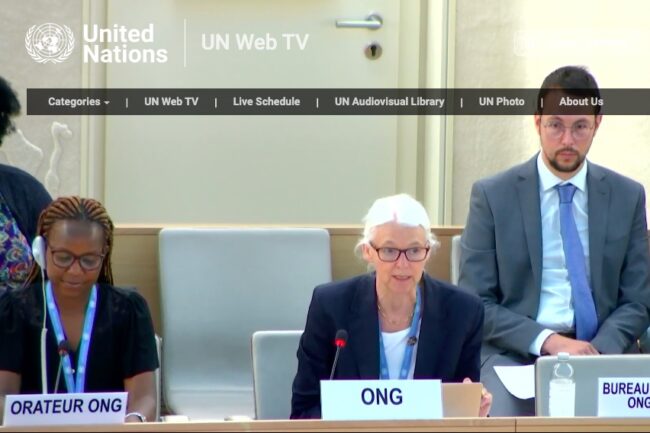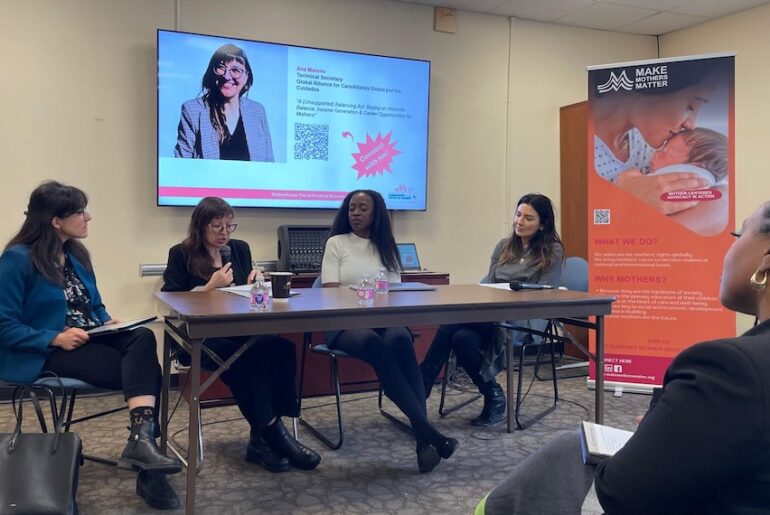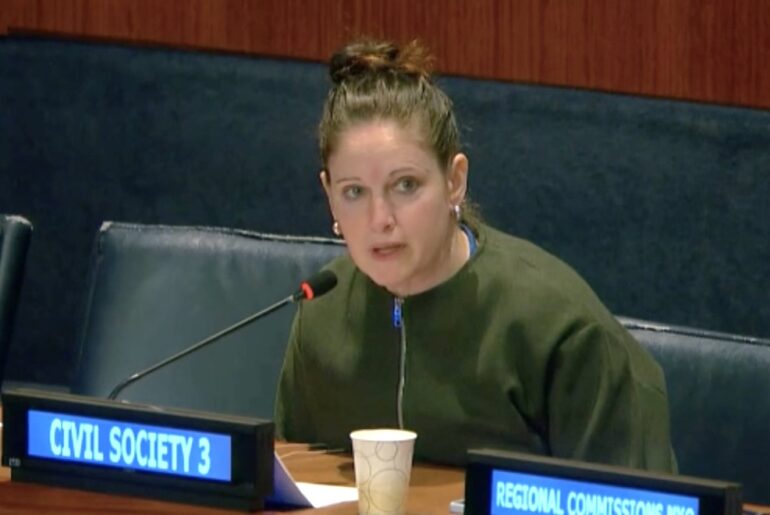MMM calls for action against parental alienation in family courts
26.06.23
UN Geneva, Human Rights Council - The annual report of the UN Special Rapporteur on Violence against women, Custody, violence against women and violence against children criticizes the use of parental alienation in family courts. The report denounces the corresponding gender bias against mothers in rulings, and its very harmful consequences in case of domestic violence and child abuse. While we welcome this seldom addressed topic coming under the spotlight, and fully support its conclusions and recommendations, our oral statement to the Council also stresses the importance of prevention.

The following is MMM’s full statement.
We fully support the recommendations of the Special Rapporteur on ‘parental alienation’, a complex topic which mostly connects to domestic violence and abuse.
In particular, we stand by the fact that judges in family courts must make the best interest of the child their main concern, prevailing over all other considerations, especially in cases of evidenced or even suspected violence or sexual abuse. Where possible, children must be listened to.
We are also concerned by the widespread gender bias against mothers. As shown in the report, compared to fathers, they are twice as likely to lose custody of their child when they are accused of parental alienation.
But above all, we want to stress the importance of prevention, as domestic violence and abuse against women and children is also often the cause of separations and ensuing fights over child custody, with everyone loosing.
Educating on harmful gender norms, promoting a more equal sharing of care work, and involving fathers in their children’s care and education from the outset, has proved to lead to better relationships within couples and can be linked to a reduction in domestic violence.
We therefore call on governments to action against the use of parental alienation to negate allegations of domestic and sexual abuse within family courts, but also to reenforce prevention.
Valerie Bichelmeier, MMM Vice-President, delivered this oral statement during the interactive dialog, which followed the presentation of the annual report of Reem Alsalem, Special Rapporteur on violence against women, its causes and consequences. This dialog took place on 22 June as part of the 53rd session of the Human Rights Council.
Mothers, unpaid care work and global crises – connecting the dots
02.07.24
UN New York / HLPF - Register now to join us online at this year’s High Level Political Forum side-event.
Time Poverty and the Motherhood Penalty
Unveiling Economic and Social Injustices
09.07.24
Mothers play an essential role in families by ensuring their loved ones are nourished, educated, and healthy, but their unpaid care work often leads to economic and social injustices, known
Envisioning care as a common thread to global crises
29.07.24
UN New York - Our virtual HLPF side-event brought together experts to shed light on how the various global crises we face (in particular climate change and other environmental crises,








